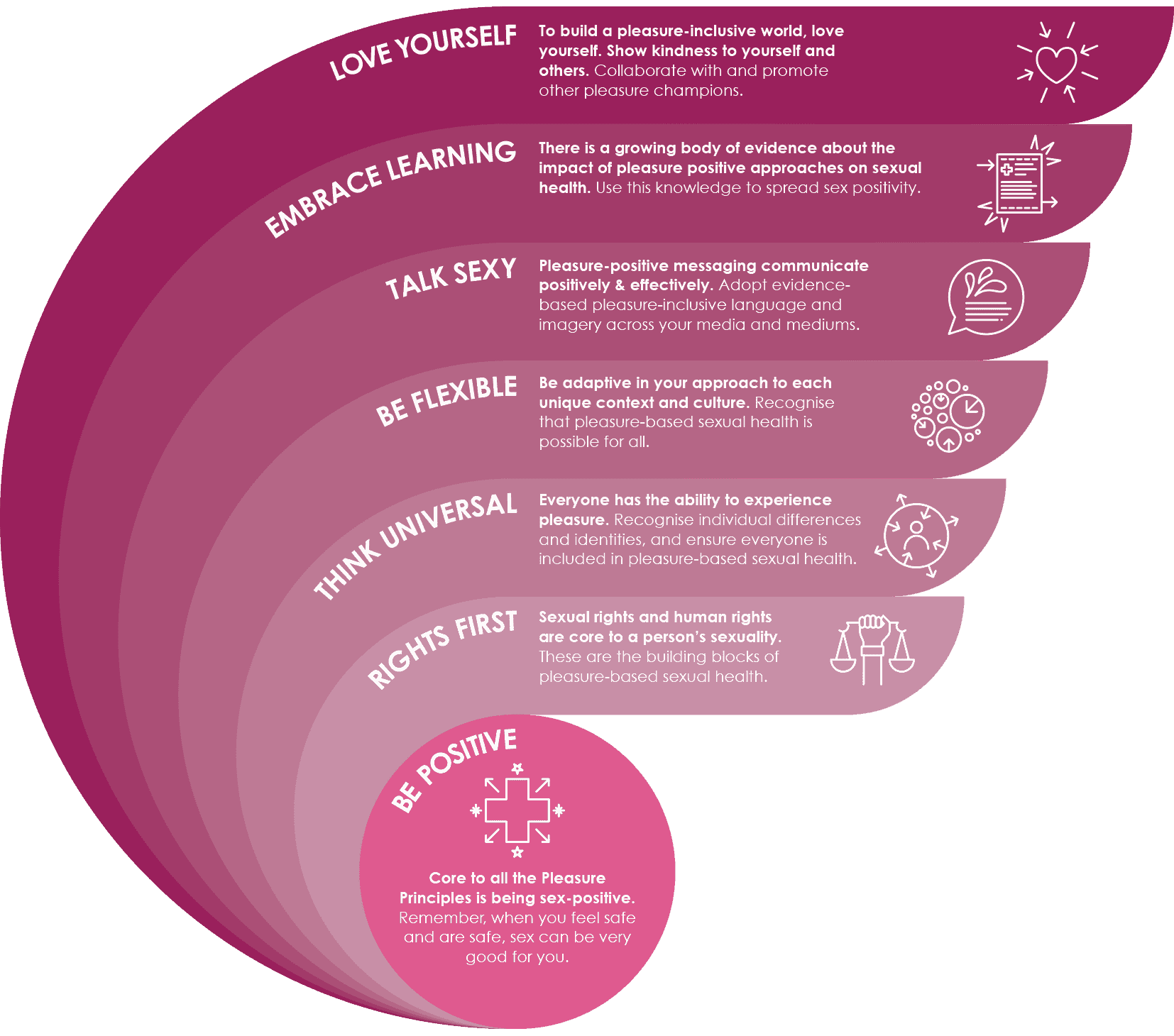Why it’s time to celebrate sexual pleasure
Pleasure is one of the main reasons people have sex. So why is it missing from so many sexual health programmes?
Pleasure is one of the main reasons people have sex. So why is it missing from so many sexual health programmes?
Published on 4 August 2023 | Yael Azgad
When you feel safe and are safe, sex can be very good for you. This is a simple, yet often overlooked truth, but it’s a message that has the power to transform sexual health education.
Sexual and reproductive health and rights (SRHR) programmes tend to focus on the negative consequences of unprotected sex, such as unintended pregnancy, HIV or other sexually transmitted infections, not on how sexual health relates to sexual pleasure.
But starting with the pleasure of sex, and linking this to safer sex practices, is far more effective than focusing on fear, death and disease because it acknowledges one of the biggest drivers for having sex. And this resonates far more closely with people’s realities.
Starting with the pleasure of sex, and linking this to safer sex practices, is far more effective than focusing on fear, death and disease because it acknowledges one of the biggest drivers for having sex.
If people feel seen and understood, they are more likely to listen – and this leads to better sexual health outcomes and improves people’s well-being. That’s why Avert takes a sex-positive and pleasure-inclusive approach to sexual health and rights, one that prioritises personal agency, is free of judgment, celebrates desire, and encourages open and honest discussions on sex and relationships.
We take this approach because we know it works. Evidence is mounting on the effectiveness of SRHR interventions that bring sexual pleasure into the equation, such as HIV prevention programmes that teach people how to make condoms part of foreplay, or reproductive health initiatives that include communication skills-building for couples so they feel able to talk honestly about what turns them on and what type of contraceptive they feel most comfortable using. A 2022 study that assessed 33 pleasure-inclusive interventions in the USA, South Africa, Brazil, Spain, the UK, Singapore, Nigeria and Mexico found they improved people’s knowledge and attitudes about sexual health and safer sex practices. The study also found that prioritising pleasure, rather than the fear of danger or disease, increased the likelihood of safer sex.
We are proud to have been the first organisation to endorse the Pleasure Principles, seven key values to guide and inspire people and organisations to take a sex-positive, pleasure-based approach to sexual health. Since then, other major organisations have joined, the principles have gained strong media interest, and the movement is growing.
We embody the Pleasure Principles in all of our work. This includes our flagship brand Be in the KNOW which offers fresh, sex-positive content for young people, mainly across sub-Saharan Africa, and the community health workers and practitioners who support them. Be in the KNOW exists to increase young people’s knowledge, confidence and ability to take decisions that support their sexual health. This is most likely to happen if young people get information and advice they trust and that engages them. A good place to start building this trust is by letting young people know that what they are feeling is okay, whether they are worried about sex or are feeling incredibly excited about it, or both.
From a blog on the reasons why we should all love lube to tips on having great sex when it’s your first time, exploring sexual pleasure through masturbation and having mind-blowing anal sex using condoms, our content connects with our audience precisely because it celebrates sexuality and sexual desire. All the while we continue to outline how to have sex in ways that will keep readers and their partners happy and safe, including how to talk about sex, what to do if you don’t like condoms, and how to understand and give consent.
This celebration of sexual pleasure is a celebration for all, including people who are criminalised and people with HIV. Our blog I have HIV, can I have sex? clearly sets out how to have great sex without passing HIV on, while advice on things like U=U and talking to your partner about sex if they have HIV puts pleasure at the centre for people with HIV and their partners – a radical thing when so many people with HIV still feel shame around sex, brought on by decades of HIV-related stigma and discrimination.
Be in the KNOW’s topics are not chosen at random. Rather we co-create our content with young people in sub-Saharan Africa to ensure we cover the things our audience needs to know about in ways that are useful and reflects their experience. Be in the KNOW’s website and social channels not only provide pleasure-positive blogs, advice and information, there are also videos, quizzes, and discussion starters that provide advice and information in fun and interactive ways.
One day we hope we will no longer need to make this argument. That all SRHR programmes will follow the evidence and not only acknowledge but actively celebrate the pleasurable aspects of sex. But while conservative attitudes towards SRHR still loom large, we must continue to be explicit in our support for approaches that puts people’s sexuality and sexual desire at the centre. It is time to stop denying sexual pleasure and shift away from the messages of fear that stops many young people from understanding and looking after their sexual health in the first place.
Photo credit: iStock/Adene Sanchez. Photos are used for illustrative purposes. They do not imply health status or behaviour.

